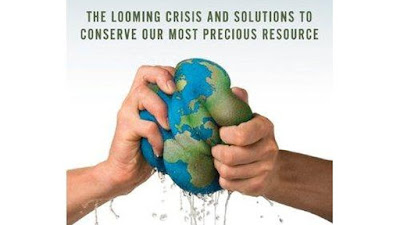Water and Politics in Africa: An Introduction to my Blog
Hello!!
Welcome to my blog! My posts will delve into the politics of water within the African continent, covering issues such as transboundary water resources as well as the consequences of shared water management, with a specific focus on countries lying on the Nile Basin.
There is an evident history with regards to conflict over water and there is a fear that such disputes will continue and become more apparent as water scarcity increases. Water scarcity is defined as ‘the shortage in the availability of renewable freshwater, relative to demand’ (Damkjaer and Taylor, 2017). As Grey and Sadoff (2007) assert, 'achieving water security' is the primary goal for many developing countries today. Of course, accessibility to water is a key issue here - who has access to water? Does everyone have the same accessibility to water? What factors are influencing the accessibility of water? The World Water Development Report, in March 2009, noted the possibility that water scarcity could, in future, 'transform peaceful competition into violence' (Barnaby, 2009). In my opinion, the management, as well as the development of water resources, can play a significantly important role in terms of reducing poverty and generating wealth. At the same time, the mismanagement of water resources can be factors that lead to dispute and conflict, and therefore it is mandatory for the right water policies to be in place.
My interest for this topic stems from my first year study of the module 'Human Ecology', which provided a small insight into some of the major issues surrounding water. I was particularly interested by the concept of the Tragedy of the Commons, which theorises that people will act independently according to their own self-interest within a shared-resource system, ignoring what may be best for the entire community (Hardin, 1968). By applying this theory to the case of water management within Africa, numerous questions can be raised. How is water being managed within Africa? What are the implications of different types of management for different people and stakeholders? Does water management seek to benefit everyone, or is it limiting? What roles do governments within Africa play with regards to the management of water? These are some of the key questions which I plan to expand on during the course of this term.
| Countries in the Nile River Basin (Quora) |
For my next blog, I will be writing about the management of water with regards to the River Nile and the Niles Basin Initiative. The Nile is the longest river in the world and is an 'international' river, in the sense that its river basin covers 11 countries. It is a major source of water and therefore the management of the river will undoubtedly have key implications.
I hope you enjoy the rest of my blog posts!



Comments
Post a Comment